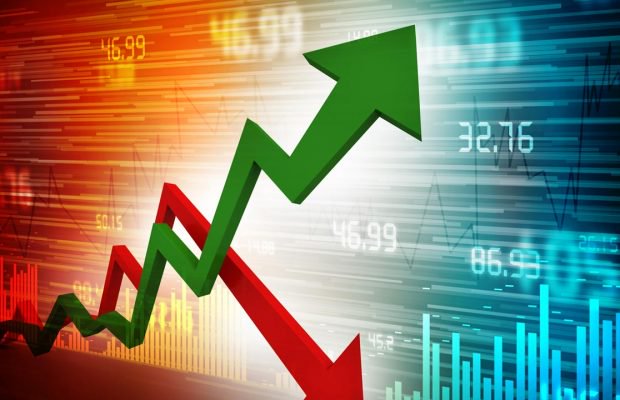
Nigeria’s inflation falls for the first time in 19 months
Nigeria’s inflation rate experienced a notable decline for the first time in 19 months, falling to 33.40 percent in July, according to the National Bureau of Statistics (NBS). This decrease, reported in the NBS Consumer Price Index (CPI) and Inflation Report, marks a 0.8 percentage point drop from June’s 34.19 percent. Despite this decline, the July 2024 figure remains significantly higher compared to the same period last year, reflecting ongoing inflationary pressures across various sectors.
The NBS Consumer Price Index (CPI) and Inflation Report for July was released on Thursday in Abuja.
On a year-on-year basis, the headline inflation rate in July 2024 was 9.32 percent higher than the rate recorded in July 2023 at 24.08 percent.
On a month-on-month basis, the headline inflation rate in July 2024 was 2.28 percent, which was 0.03 percent lower than the rate recorded in June 2024 at 2.31 percent.
“This means that in July 2024, the rate of increase in the average price level is lower than the rate of increase in the average price level in June 2024,” the report read in part.
The increase in the headline index for July 2024 on a year-on-year and month-on-month basis was attributed to the rise in prices of some goods and services at the divisional level.
These increases were observed in food and non-alcoholic beverages, housing, water, electricity, gas, and other fuel, clothing and footwear, and transport.
Others were furnishings, household equipment and maintenance, education, health, miscellaneous goods and services, restaurants and hotels, alcoholic beverages, tobacco and kola, recreation and culture, and communication.
The percentage change in the average CPI for the 12 months ending July 2024 over the average of the CPI for the previous corresponding 12-month period was 30.76 per cent.
“This indicates an 8.84 percent increase compared to 21.92 per cent recorded in July 2023.”
Food inflation rate in July 2024 increased to 39.53 percent on a year-on-year basis, which was 12. 55 percent higher compared to the rate recorded in July 2023 at 26.98 per cent.
“The rise in food inflation on a year-on-year basis is caused by increases in prices of semovita, yam flour, wheat flour, yam, Irish potatoes, water yam, etc.
“Others are groundnut oil, palm oil, milo, bournvita, Ovaltine, etc.”
On a month-on-month basis, the food inflation rate in July was 2.47 per cent, which was a 0.08 percent decrease compared to the rate recorded in June 2024 at 2.55 per cent.
“The fall in food inflation on a month-on-month basis was caused by a decrease in the average prices of tin milk, baby powdered milk, mudfish, fresh fish, snail, etc.
“Others are date palm fruit, watermelon, garri, Akpu, exercise books, textbooks, turkey meat, minced pork, etc.
“All items less farm produce and energy or core inflation, which excludes the prices of volatile agricultural produce and energy stood at 27.47 percent in July on a year-on-year basis.
“This increased by 6.99 percent compared to 20.47 percent recorded in July 2023.
“The exclusion of PMS is due to the deregulation of the commodity by removal of subsidy,” the report noted.
“The highest increases were recorded in prices of rents, bus journey intercity, journeys by motorcycle, etc.
“Others are accommodation service, laboratory service, x-ray photography, consultation fee of a medical doctor, among others.”
The NBS said on a month-on-month basis, the core inflation rate was 2.16 per cent in July 2024.
“This indicates a 0.10 percent increase compared to what was recorded in June 2024 at 2.06 per cent.
“The average 12-month annual inflation rate was 24.65 percent for the 12 months ending July 2024, this was 5.81 per cent points higher than the 18.84 percent recorded in July 2023.”
The report said on a year-on-year basis in July 2024, the urban inflation rate was 35.77 per cent, which was 9.94 percent higher compared to the 25.83 per cent recorded in July 2023.
“On a month-on-month basis, the urban inflation rate was 2.46 per cent, which decreased by 0.003 per cent compared to June 2024 at 2.46 per cent.”’
On a year-on-year basis in July 2024, the rural inflation rate was 31.26 per cent, which was 8.77 per cent higher compared to the 22.49 percent recorded in July 2023.
“On a month-on-month basis, the rural inflation rate was 2.10 per cent, which decreased by 0.07 per cent compared to June 2024 at 2.17 per cent.”
On states’ profile analysis, the report showed that in July, all items’ inflation rate on a year-on-year basis was highest in Bauchi at 46.04 per cent, followed by Jigawa at 40.77 percent, and Kebbi at 37.47 percent.
However, the slowest rise in headline inflation on a year-on-year basis was recorded in Benue at 27.28 percent, followed by Delta at 28.06 percent, and Borno at 28.33 percent.
In July 2024, all items inflation rate on a month-on-month basis was highest in Abuja at 3.91 per cent, followed by Borno at 3.84 percent, and Enugu at 3.76 percent.
“Taraba at 0.71 per cent, followed by Kwara at 0.62 percent and Ondo at 0.91 percent recorded the slowest rise in month-on-month inflation.”
The report said on a year-on-year basis, food inflation was highest in Sokoto at 46.26 percent, followed by Jigawa at 46.05 percent, and Enugu at 44.06 percent.
“Adamawa at 33.48 percent, followed by Bauchi at 35.10 percent and Benue at 36.41 percent recorded the slowest rise in food inflation on a year-on-year basis.’’
The report, however, said on a month-on-month basis, food inflation was highest in Borno at 5.07 percent, followed by Sokoto at 4.99 percent, and Enugu at 4.17 percent.
“With Kwara at 0.51 percent, followed by Taraba at 0.56 percent and Ondo at 0.68 per cent, recorded the slowest rise in inflation on a month-on-month basis.”




